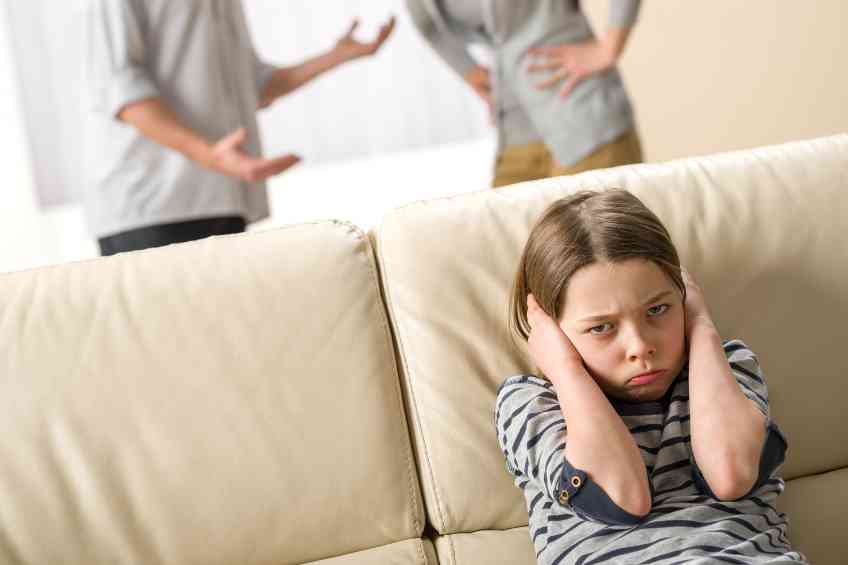By John Salak –
Parental conflict can’t be helped in marriage, but obviously, deep disruptions can have harmful effects on children. Parents under stress may wind up focusing their anger on their children and in worst-case scenarios harm their development. But researchers at the University of Illinois Urbana-Champaign report that parents, especially fathers, can lessen any unhealthy impacts by how they deal with marital conflict.
“In the past, marital conflict has always been considered a negative thing in reference to various aspects of child development. But what’s more important than having conflict is how people deal with it. Our study looked at whether constructive conflict resolution could buffer some of the negative influence of marital conflict on parenting practices,” explained lead author Qiujie Gong, a doctoral student at the university.
This latest research comes on the heels of various research that underscores how the parents in conflict can harm their children. Ohio State University, for example, reported that children face development issues if parents don’t have a positive view of co-parenting. Arizona State University developed other research that stressed conflict between divorced or separated parents increases the risk of children developing physical and mental health problems.
The Illinois researchers focused on the impact fathers have on their children because previous studies have shown that father-child relationships may be more impacted by conflict than mother-child relationships.
“We wanted to pay more attention to fathers because while mothers have always been considered the main caregiver, fathers can also significantly influence children’s development,” Gong said.
The researchers used a U.S. Department of Education dataset to trace children’s experiences from nine months to kindergarten, recognizing the importance of the preschool years for learning socioemotional skills. They analyzed the subset of data for families with 4-year-olds and, controlling for mothers’ parenting styles, homed in on fathers’ responses to survey questions about marital conflict and resolution strategies.
“Beyond looking separately at mothers, fathers, and conflict, as previous studies have done, we put it all together in one model, not only to see the family as an interconnected system but also to not forget the father: How his perceptions of conflict and approaches to resolution affect child socio-emotional development,” said co-author Professor Karen Kramer.
The research found when fathers reported more frequent marital conflict, it increased their parenting stress and decreased their warmth toward their child. Those factors then decreased the child’s socio-emotional skills reported by mothers in the surveys.
Preschool-age children are at particular risk because these early experiences set the stage for later peer relationships and mental health, among other issues. This means parents of small children need to consider how their interactions spill over to their kids, Gong said.
“We found fathers who reported using more constructive conflict resolution—like open communication and reaching compromise, as opposed to hitting, criticizing, or throwing things—showed more involvement and warmth toward their kids, compared to their counterparts,” she said.
Children, not surprisingly, benefited from these warmer interactions with fathers.
“Fathers using constructive conflict resolution led to more parental involvement, which led to more positive child development,” Kramer said. “Destructive conflict has the opposite effect on kids.”
Ultimately, the researchers stressed that parents shouldn’t avoid conflict. Instead, it is essential to find constructive resolution strategies that minimize stress, all while maintaining a father’s ability to interact warmly.
“If we could have more clinical or educational programs that teach parents how to openly communicate with each other, how to listen to each other, and maintain good relationships with family members, it might be effective in promoting healthier family and child development,” Gong said. “It’s also important to not only consider the amount of parenting but the quality of parenting. Even if fathers have a lot of involvement, if their warmth is super low, that might not be beneficial for the child.”













